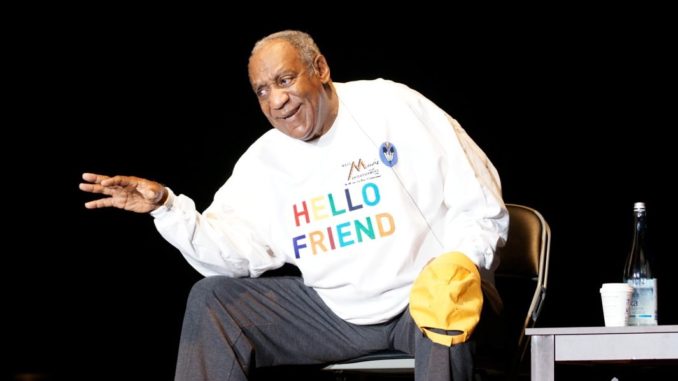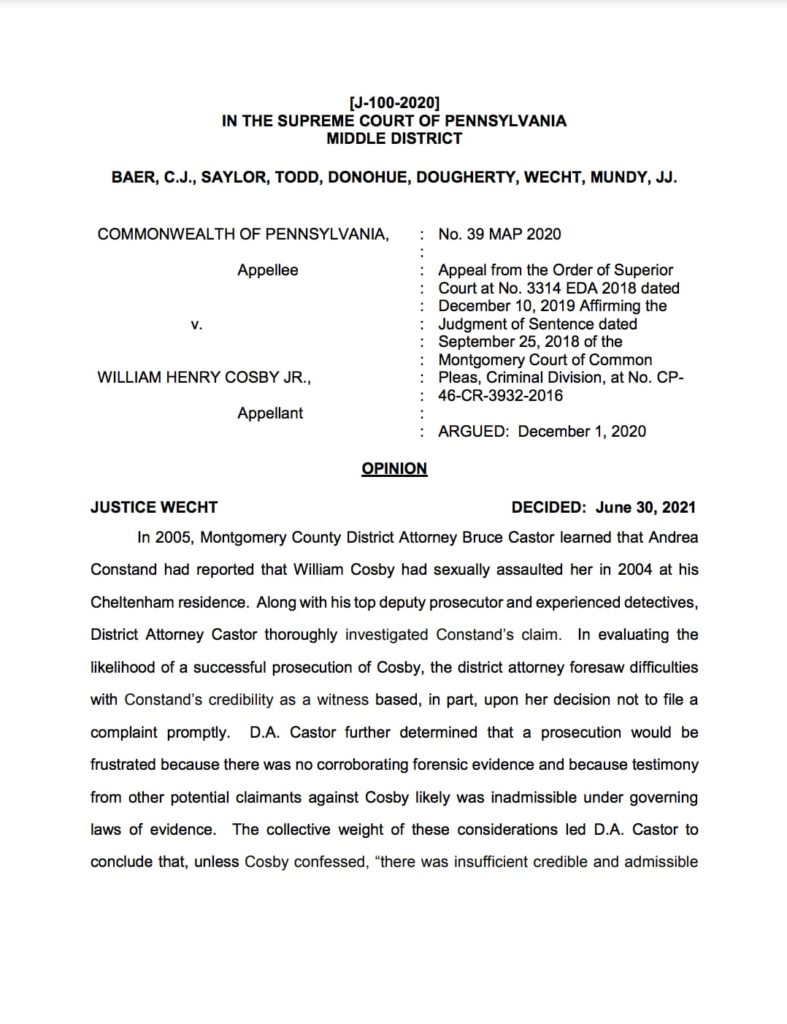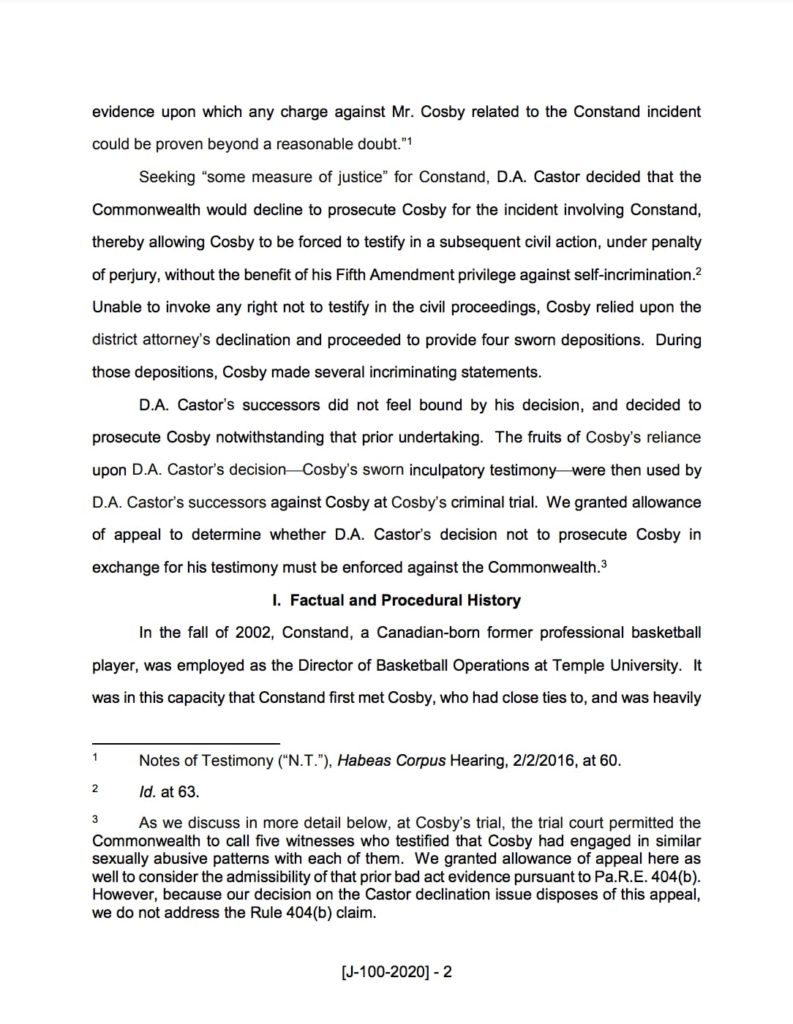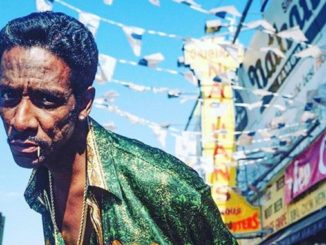
In a surprising turn of events, the Pennsylvania Supreme Court overturned the sexual assault conviction that imprisoned “America’s Dad,” Bill Cosby, for nearly three years. The announcement was made early on Wednesday through a release of court documents. Reports indicated that Cosby could be released from prison soon as a result of the new ruling.
The court documents state, “In evaluating the likelihood of a successful prosecution of Cosby, the district attorney foresaw difficulties with Constand’s credibility as a witness based, in part, upon her decision not to file a complaint promptly. D.A. Castor further determined that a prosecution would be frustrated because there was no corroborating forensic evidence and because testimony from other potential claimants against Cosby likely was inadmissible under governing laws of evidence. The collective weight of these considerations led D.A. Castor to conclude that, unless Cosby confessed, “there was insufficient credible and admissible evidence upon which any charge against Mr. Cosby related to the Constand incident could be proven beyond a reasonable doubt.”


The conviction was overturned upon the court finding that Cosby made an agreement with the prosecutor to give four sworn testimonies in exchange for the district attorney not prosecuting Cobsy based on the incident alleged by Constand in which she claims she was sexually assaulted in 2004 at Cosby’s home. Cosby still faces a possible civil action from Constand.
“Seeking “some measure of justice” for Constand, D.A. Castor decided that the Commonwealth would decline to prosecute Cosby for the incident involving Constand, thereby allowing Cosby to be forced to testify in a subsequent civil action, under penalty of perjury, without the benefit of his Fifth Amendment privilege against self-incrimination. Unable to invoke any right not to testify in the civil proceedings, Cosby relied upon the district attorney’s declination and proceeded to provide four sworn depositions. During those depositions, Cosby made several incriminating statements.
D.A. Castor’s successors did not feel bound by his decision, and decided to prosecute Cosby notwithstanding that prior undertaking. The fruits of Cosby’s reliance upon D.A. Castor’s decision – Cosby’s sworn inculpatory testimony – were then used by D.A. Castor’s successors against Cosby at Cosby’s criminal trial. We granted allowance of appeal to determine whether D.A. Castor’s decision not to prosecute Cosby in exchange for his testimony must be enforced against the Commonwealth.”



